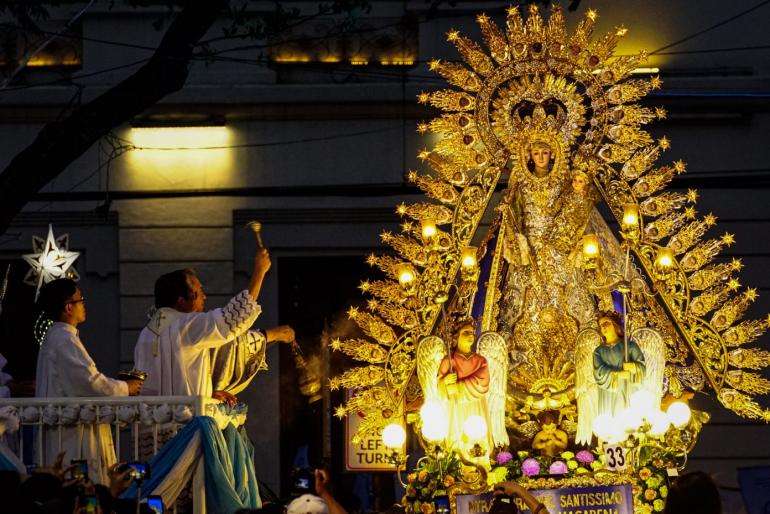The adequacy of the simple presence of Mary

February 11, Friday, Fifth Week in Ordinary Time
Feast of our Lady of Lourdes
Readings: 1 Kings 11:29-32, 12:19 & John 2:1-11
Today is Our Lady of Lourdes' feast day. Today's Gospel is one of the most well-known: the wedding at Cana. The disciples, Mary, and Jesus had been invited to a wedding. After a while, Marry discerns the new spouses' needs and prudently informs Jesus by pleading for them: "They have no more wine" (John 2:3).
While Jesus' response appears evasive, if not hostile, Mary warns the servants to "Do whatever He tells you" (John 2:5). She had no idea what Jesus would do, but she was most likely thinking: whatever he does, he will do it to the best of his ability! Indeed, she was correct.
The outcome is self-evident: the messianic abundance of the "best wine" astounds the banquet's master, and the disciples renew their faith in Jesus.
Jesus miraculously transforms water into wine. It was Jesus' first miracle. The wedding host had no idea who he had invited, but received unexpected blessings from Mary and Jesus' presence.
I want to emphasize the sufficiency of Mary's simple presence at that wedding feast: with feminine foresight, she recognizes what is missing and shares it prudently with her son. This is Mary's magnificent mission in our lives and in the Church.
Let us recall Pope Francis' words on Mary's and women's roles in the Church: "The church cannot function without the woman. Mary is more important than the bishops because she is a woman. Wherever we make critical decisions, the feminine genius is required."
There are numerous shortcomings in the Church, our families, and our personal lives that Mary identifies and bestows upon Jesus, and her mediation is always effective. The woman is intended to fulfill a similar role. However, it is necessary to invite Jesus and Mary into our lives. And, perhaps most importantly, it is also required that we follow Jesus' instructions.
Radio Veritas Asia (RVA), a media platform of the Catholic Church, aims to share Christ. RVA started in 1969 as a continental Catholic radio station to serve Asian countries in their respective local language, thus earning the tag “the Voice of Asian Christianity.” Responding to the emerging context, RVA embraced media platforms to connect with the global Asian audience via its 21 language websites and various social media platforms.














